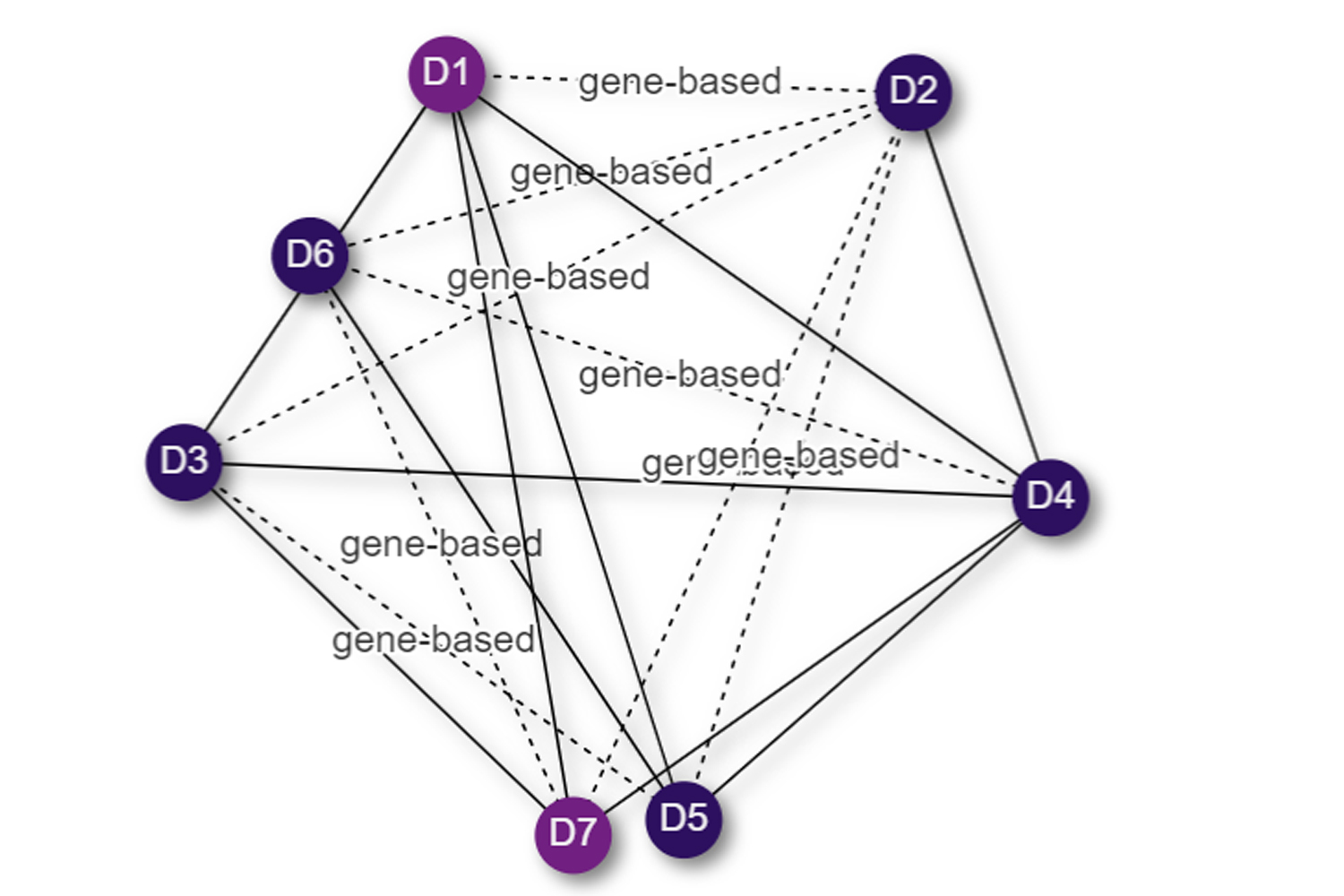Network medicine: causes instead of symptoms The role of traditional disease definitions in the search for disease mechanisms
Imagine a future where doctors can more effectively cure disease by addressing the causes instead of the symptoms. This is exactly what network and precision medicine aims to do: Instead of defining diseases mainly in terms of symptoms or affected organs, as is done in the much-used International Classification of Diseases (ICD) of the World Health Organisation, network medicine aims to classify diseases in terms of underlying molecular mechanisms. By understanding these mechanisms, doctors could develop more targeted and effective treatments that cure people with complex diseases, rather than just alleviating their symptoms. The results of the study have now been published in the journal Nature Communications.
To realise this vision, network medicine approaches aim to uncover the molecular mechanisms underlying complex diseases. To this end, researchers often draw on large databases in which diseases are linked to proteins, genetic variants, drugs or symptoms. In such databases, however, diseases are described using the very organ- and symptom-based disease classification systems that network medicine seeks to overcome.
This raises the question of whether network medicine studies that rely on large disease association databases risk reproducing the biases introduced by organ- and symptom-based disease definitions.

Example of a visualisation of interconnections of database relationships for the assessment of molecular disease mechanisms. Image credit: graphsimviz.net
To answer this question, an international team of researchers involving the Friedrich-Alexander-Universität Erlangen-Nürnberg, the University of Hamburg and Technische Universität Braunschweig constructed networks from different databases that are commonly used to search for pathomechanisms. They then investigated whether these networks are more similar in pairs than would be expected by chance. This should be the case if the underlying databases actually contain useful information about disease mechanisms. Their results were published in the journal Nature Communications and can also be visualised in an interactive web application.
“Although currently available databases allow a rough assessment of molecular disease mechanisms, we are often still in the dark when it comes to the details of individual diseases,” reports Professor Tim Kacprowski from the Data Science in Biomedicine department of the Peter L. Reichertz Institute for Medical Informatics (PLRI) at Technische Universität Braunschweig and Hannover Medical School.
“Focused studies with molecular data for well-characterised patient cohorts are thus still the best way, even a necessity, to further advance systems medicine.”
